#leonard maltin
Explore tagged Tumblr posts
Text
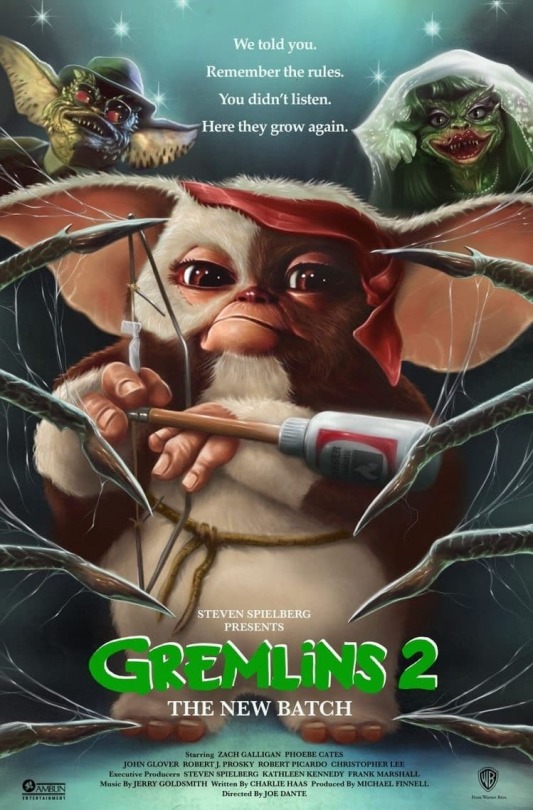
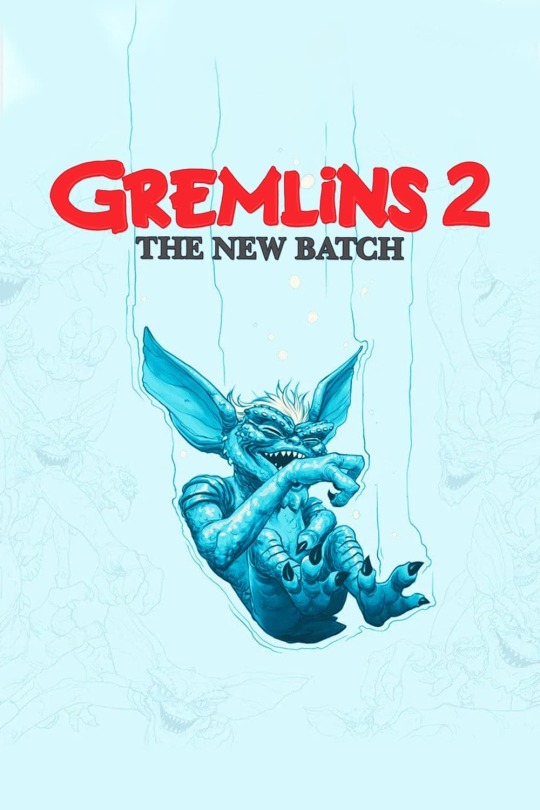


W A T C H I N G
#GREMLINS 2 THE NEW BATCH (1990)#zach galligan#phoebe cates#john glover#robert prosky#robert picardo#christopher lee#Haviland Morris#dick miller#Jackie Joseph#Gedde Watanabe#Keye Luke#kathleen freeman#Jason Presson#belinda balaski#hulk hogan#Leonard Maltin#john astin#Henry Gibson#HORROR#comedy#scifi#watching#fantasy
9 notes
·
View notes
Text

Happy birthday, Leonard Maltin!
18 notes
·
View notes
Link
The Santa Barbara International Film Festival is honored to announce that cinema icon Angelina Jolie will receive the Maltin Modern Master Award during the upcoming 40th annual Festival. Jolie will receive the prestigious award on February 5, 2025
1 note
·
View note
Text

LEONARD MALTIN
Leonard Michael Maltin is an American film critic, film historian, and author. He is known for his book of film capsule reviews, Leonard Maltin's Movie Guide, published annually from 1969 to 2014. Maltin was the film critic on Entertainment Tonight from 1982 to 2010.
#leonardmaltin
0 notes
Text
Haterating and hollerating in the 1970s:
SKIN GAME (1971): Tasteless, offensive, completely unfunny comedy, set in 1857, starring James Garner and Louis Gossett as con artist partners Quincy and Jason, whose preferred scam is having Quincy sell Jason as a slave and then immediately help him escape so they can split the proceeds of the "sale." When Jason is enslaved "for real," Quincy has to come up with a scam to get him out, with the help of a persistent con woman (Susan Clark) who's decided she's his new partner. Inexplicably well-regarded by critics — Leonard Maltin gives it three and a half stars out of four — it's indefensibly dreadful, serving mostly to illustrate how bad BLAZING SADDLES might have been without the involvement of Richard Pryor; SKIN GAME screenwriter Peter Stone's idea of a comic setpiece is having a cartoonish caricature of real-life abolitionist John Brown break up a slave auction just before Quincy can collect his biggest-ever profit from selling Jason. Appalling. CONTAINS LESBIANS? Nix. VERDICT: The pits, and Garner's normally charming laconic patter only makes it worse.
VANISHING POINT (1971): Existentialist road movie about a delivery driver named Kowalski (Barry Newman) — eventually revealed as a disillusioned Medal of Honor recipient and ex-cop, expelled from the San Diego police force for stopping another cop from raping someone — who becomes a fugitive after accepting a bet that he can deliver a souped-up Dodge Challenger from Denver to San Franscisco in less than 48 hours. Pursued by police across four states, Kowalski finds himself an outlaw celebrity thanks to a blind DJ called Super Soul (Cleavon Little), who christens him "the last American hero." More of a mood piece than an action movie, with Newman effective as the doomstruck Kowalski, who already has at least one foot in the grave. (The UK cut includes a crucial penultimate scene with Charlotte Rampling as a rather sinister hitchhiker, dropped from the original U.S. release.) Not entirely satisfying on its own terms, but its pretensions set it apart from the usual drive-in fare, and it boasts some evocative visuals and an interesting, mostly diegetic gospel soundtrack. It's also far less abrasive than the thematically similar RUNAWAY TRAIN (1986). CONTAINS LESBIANS? No, and the movie's worst scene has Kowalski nearly carjacked by a pair of grotesquely stereotyped gay men whose car has broken down on the highway. VERDICT: Worth a look, but stick with the longer UK "extended" version.
WILLIE DYNAMITE (1974): Dreadful blaxploitation movie about a slick New York pimp called Willie Dynamite (Roscoe Orman), who finds a gay rival pimp (Roger Robinson) trying to cut him out of the action just as one of his girls (Joyce Walker) is tempted to leave the life at the urging of social worker Cora (Diana Sands), who wants to bring Willie down with the help of her assistant DA boyfriend (Thalmus Rasulala) and a bitter cop (Albert Hall). Silly and over the top for a while, the movie then makes a lurching shift to clunky morality-play melodrama, leading up to a laughably contrived uplifting finale. Awful songs with heavy-handed lyrics by director Gilbert Moses don't help; Curtis Mayfield he was not. CONTAINS LESBIANS? Nope. VERDICT: Only for blaxploitation completists.
#movies#hateration holleration#skin game#james garner#louis gossett jr.#vanishing point#barry newman#cleavon little#charlotte rampling#willie dynamite#blaxploitation#roscoe orman#diana sands#roger robinson#albert hall#leonard maltin
1 note
·
View note
Photo
I did! I got to interview @neil-gaiman . I love talking to creatives who love Jack. The mutual interest always makes it feel like I'm just having a conversation with a friend.
So thank you, friend, for taking time for our old-time radio-obsessed convention.
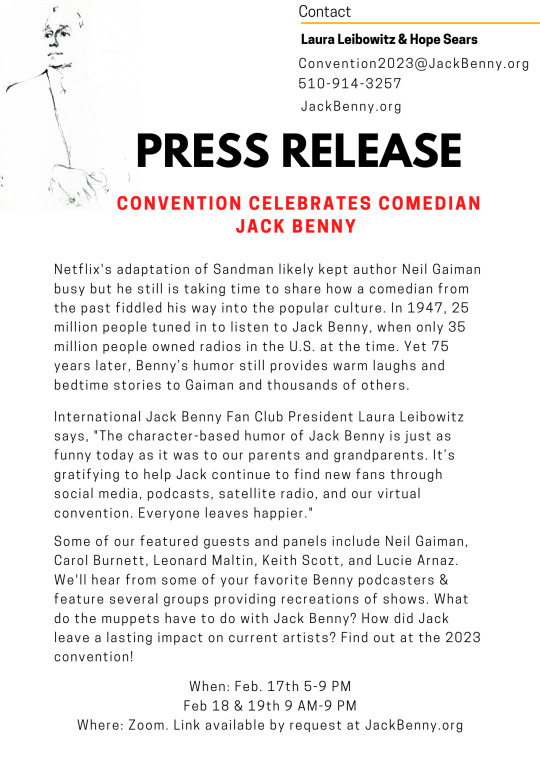
Who got to interview Neil Gaiman?
#Jack Benny#Neil Gaiman#old time radio#radio#Carol Burnett#guest list#Leonard Maltin#Keith Scott#Lucie Arnaz#podcasting#podcasters#Muppets#Jim Henson#2023#convention#zoom convention#zoom#Sandman#Netflix#otr#classic hollywood#golden age of hollywood
549 notes
·
View notes
Text
1982: The Greatest Geek Year Ever Review- A Docuseries That Brought Me Back to My Childhood in a Great Way
The fact that 1982 is a year that has been one that made me who I am today is pretty incredible to me. That year had so many of my favorite movies. ET the Extraterrestrial is a film that has been one of the most influential movies of my lifetime. I was only 8 years old at the time, but I loved that movie so much. I still remember watching it at a drive-in theater, and I felt ET and Elliot (Henry…
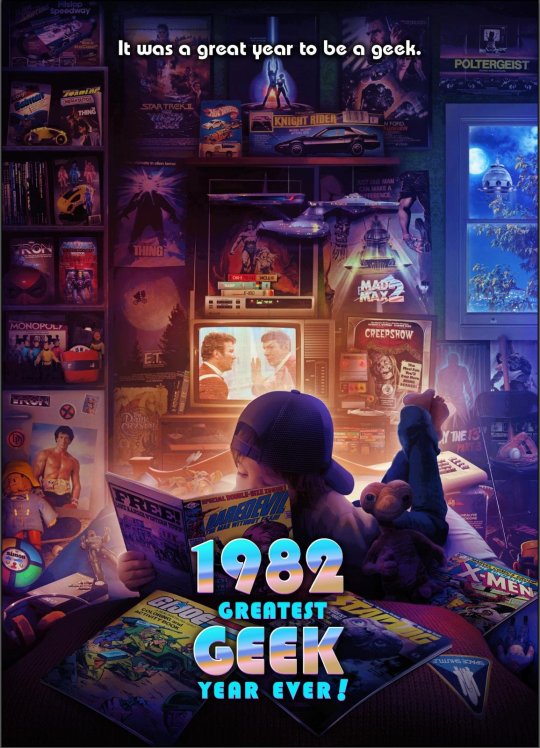
View On WordPress
#1982 The Greatest Geek Year Ever#Adrianne Barbow#Aslem Richardson#Barry Bostwick#Brea Grant#Bryan Fuller#Bryan Rafferty#Dean Devlin#Dee Wallace#Don Coscarelli#Drew McWeeny#Grea Drake#Henry Winkler#John Carpenter#Leonard Maltin#Marc Guggenheim#Marc Miller#Mark S Altman#Paramount Pictures#Paul Schrader#Robert Meyer Burnett#Roger Cormen#Ron Howard#Scott Mantz#Shawn Mendez#the CW#Wes Craven
1 note
·
View note
Note
1989. Leonard Maltin gives this movie 2 and a half stars.
He says: "Pleasant but completely unremarkable" and "Followed by two sequels." He also calls the female lead "Bitchy".
How many names do you think you can get this in?
Negative three names
can anyone go negative four?
10 notes
·
View notes
Text
An essay rebutting the “bad writing” claims of s2 ofmd. Spoilers herein.
I’ll preface this with saying you’re obviously allowed to like and dislike whatever you want. I am in no way opposing that. And your reasons are your reasons. Have at. (Also - this is a collection of observations from the past few days, I’m not calling anyone out)
I AM going to rebut the idea that season two was poorly written and lost the spirit of what the show is about.
My favourite movie of all time is Empire Strikes Back. It’s been my favourite movie since I was four. I’m pretty sure it’s a fave of David Jenkins, too. He and Taika have made absolutely no attempt to hide their love of all things 80’s - Prince, the Princess Bride, Kate Bush, Star Wars, etc.
I have ancient video tapes (that I can’t play because who has a vcr) where Lucas is interviewed by Leonard Maltin? Malkin? I dunno. Who cares. Maltin asks him about the Star Wars (original trilogy) story arc. Lucas says “in act I, you introduce all the characters. In act II, you put them in a situation they can’t get out of, and in act III, they get out of it.”
That’s how it works. This is how stories and literary structures work.
Of course you’re not satisfied with season two. You’re not supposed to be.
The arguments I have read on why s2 loses the spirit of s1 is because no one heals. No one learns anything. No one moves forward properly. The person who makes the biggest move towards healing dies. The two main characters end the show doing the exact fucking thing they had promised themselves and each other they wouldn’t do. Our romantic lead still doesn’t understand his value or make any headway on addressing his tragic flaw. It makes no goddamn sense.
My gremlins in weird: it’s not supposed to. In Act 2, EVERYONE LOSES. This is how it goes.
I’ve read a lot of people saying “but this felt like a series finale, not a season finale.” We all know that outside politics play a part here, the strikes make everything precarious. I remember the last writers strike. It destroyed tv for fifteen years. Anyone remember Pushing Daisies? Some of y’all have never had your fave show cancelled with zero resolution for the characters and it shows.
Daddy J did us a kindness. He softened the blow of a tough season. After the brutal cliffhanger of s1, he gave us a little softness and hope. All those things you’re mad aren’t resolved? It’s because THE STORY ISN’T OVER.
No one on earth thinks “stuff all your trauma into a box and ignore it” is good advice. A way to actually live. This show did not have enough screen time to throw out dialogue for no reason. There was foreshadowing in s1 for s2, and there is foreshadowing for s3 in s2. This is a well-crafted story by very smart people who care very much for these characters. There is zero chance Frenchie explained the box in his head for no reason. The reason people have not resolved their trauma and growth is because they haven’t done it *yet*.
And friends - it’s not thinly veiled. They straight up fucking tell us what they’re doing.
Luke Skywalker spends the first two movies fucking up and desperately trying to prove himself and just generally being an idiot. Sound familiar? He ignores the lessons he is supposed to be learning to go off and do what he feels like doing, and loses fucking badly. At the end of Empire, Han is gone, Luke and Leia wave goodbye to the Falcon that has Lando and Chewy - the rest of their crew - aboard. Everyone has lost everything they care about. Vader is undefeated. Yoda is pissed. Nothing is resolved.
You see where I’m going?
If you think I’m stretching this too far, welp, when Ed tells Stede he loves him - the climax of the finale - Stede quotes Han fucking Solo. Like - *it’s right there*. The story structure. The reason everything is unresolved.
So yeah. They wave goodbye to their ship because they have wounds to heal (like Luke’s hand). The people aboard the ship have things to find. Ed and Stede have *not* learned their lesson about whims and how not to be like Anne and Mary. It’s not stupid that they’re doing the same thing, and it’s not pointless that we were shown Anne and Mary. It’s all relevant.
The resolution comes in Act 3. None of these people are done. The story is far, far from over. And just in case the studios want to be dicks about it, David Jenkins was lovely enough to not repeat my enduring heartbreak over Pushing Daisies.
Thank you, @davidjenks 🖤
713 notes
·
View notes
Text
As a kid I hated that the start of the Star Wars VHS tapes were stuffed with extremely long interviews between George Lucas and Leonard Maltin. I didn't know why the bearded guy from the doorstopper film guide book that everyone with a passing interest in film owned had to waste so much fast forwarding time before I could get to see C-3PO, but those interviews shortened the lifespan of my tapes.
I don't even want DVD special features back – I want VHS space-fillers back. I grew up in the era when distributors would just stick random shit at the end of a VHS tape to use up any space left over once the actual film was recorded, and sure, a lot of the time it was previews for other movies, but sometimes it was The Weird Stuff.
3K notes
·
View notes
Text


Debunking conspiracy theories with Leonard Maltin
8 notes
·
View notes
Text
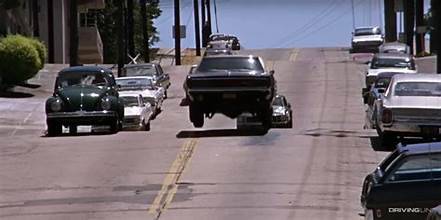
"Bullitt" (1968) was director Peter Yates' first American film. He was hired after Steve McQueen saw his 1967 U.K. feature "Robbery," with its extended car chase. Joseph E. Levine, whose Embassy Pictures had distributed "Robbery," did not like the film much, but Alan Trustman, who saw the picture the week he was writing the "Bullitt" chase scenes, insisted that McQueen, his Solar Productions partner Robert Relyea and producer Philip D'Antoni (none of whom had ever heard of Yates) see "Robbery" and consider Yates as director for "Bullitt."
Bullitt is notable for its extensive use of actual locations rather than studio sets, most notably the city of San Francisco, California, and its attention to procedural detail, from police evidence processing to emergency-room procedures. Yates' use of the new lightweight Arriflex cameras allowed for greater flexibility in location shooting.
At the time of the film's release, the exciting car chase scenes featuring McQueen at the wheel in all driver-visual scenes generated prodigious excitement. Film critic Leonard Maltin has called it a "now-classic car chase, one of the screen's all-time best." Fellow critic Emanuel Levy wrote in 2003, "'Bullitt' contains one of the most exciting car chases in film history, a sequence that revolutionized Hollywood's standards."
Drivers' point-of-view shots were used to give the audience a participants' feel of the chase. Filming took three weeks, resulting in 9 minutes 42 seconds of pursuit. McQueen, a world-class racecar driver at the time, drove in the close-up scenes, while stunt coordinator Carey Loftin, stuntman and motorcycle racer Bud Ekins, and McQueen's usual stunt driver, Loren Janes, drove for the high-speed parts of the chase and performed other dangerous stunts.
Billy Fraker, the cinematographer for the film, attributed the success of the chase sequence primarily to the work of the editor, Frank P. Keller.
The editing of the scene was not without difficulties. Noted editor Ralph Rosenblum wrote in 1979, "Those who care about such things may know that during the filming of the climactic chase scene in 'Bullitt,' an out-of-control car filled with dummies tripped a wire which prematurely sent a costly set up in flames, and that editor Frank Keller salvaged the near-catastrophe with a clever and unusual juxtaposition of images that made the explosion appear to go off on time." (Wikipedia)
#car#cars#muscle car#american muscle#mopar#ford#moparperformance#moparnation#moparworld#chevrolet#movie cars#movies
64 notes
·
View notes
Text
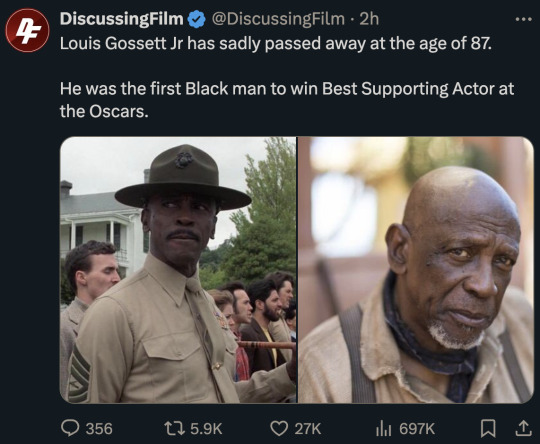
I think I have to get used to the fact all of the heroes in the 80s movies I watched as a kid are going to pass away soon. Arnold just had to get a pacemaker.
Louis Gossett Jr. was in my favorite fake Top Gun movies.
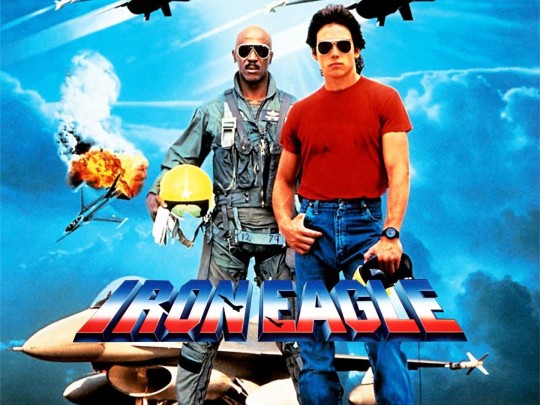
They made 4 of these things and let's just say they did not get better as they went along. But Louis was always worth watching and never disappointed.
Just to give you an idea, here are some reviews from Wikipedia...
"Kevin Thomas of the Los Angeles Times called the film "ludicrous", "preposterous", and "a total waste of time", saying it "achieves a kind of perfection of awfulness that only earnest effort can produce"."
"Film historian and reviewer Leonard Maltin dismissed the film as "a dum-dum comic-book movie […] full of jingoistic ideals and dubious ethics, along with people who die and then miraculously come back to life. Not boring, just stupid."
"10 year old Froggie praised the film as "Mega Rad!" and marveled "I liked when the planes exploded!" *proceeds to make explosion noises* Young Froggie even taped the first 3 movies on a single VHS tape and drew a bunch of fighter jets on the label. He watched the first film 84 times because his brother hogged the Nintendo."
All of that is to say, Louis was cool as shit. He was a big part of my childhood. And I will miss seeing him in movies.
112 notes
·
View notes
Text
MAUREEN O'HARA: A WOMAN OF BEAUTY, STRENGTH, & DIGNITY
In Memory of The Queen of Technicolor
youtube
In loving memory of one of Ireland's greatest gifts to cinema, The O'Hara Collection is devoted to the films and collective works of actress, Maureen O'Hara. The goal of this blog is to showcase her wonderful spirit and shed light on her glorious career as one of the Golden Age's finest. Later dubbed The Queen of Technicolor, O'Hara not only dressed her films with her fiery red hair and brilliant green eyes, but she also had a talent for acting that even rivaled her beauty. There will never be another like her.
Maureen O'Hara was born August 17th, 1920. She passed October 24th, 2015. She was 95 years old.
Interviews and commentary sampled from the following featurettes: -A Tribute to Maureen O'Hara with Hayley Mills, Juliet Mills, and Ally Sheedy -The Making of The Quiet Man (hosted by Leonard Maltin) -The Making of Rio Grande (written and hosted by Leonard Maltin)
Song: Maggie's Theme from The Parent Trap Soundtrack
Films Used In Order of Appearance: Lisbon (1956) w/ Ray Milland Jamaica Inn (1939) w/ Charles Laughton The Hunchback of Notre Dame (1939) w/ Charles Laughton How Green Was My Valley (1941) w/ Walter Pidgeon Against All Flags (1952) w/ Errol Flynn The Black Swan (1942) w/ Tyrone Power Spencer's Mountain (1963) w/ Henry Fonda Our Man in Havana (1959) w/ Alec Guinness Mr. Hobbs Takes A Vacation (1962) w/ Jimmy (James) Stewart The Parent Trap (1961) w/ Hayley Mills The Quiet Man (1952) w/ John Wayne The Rare Breed (1966) w/ Juliet Mills McLintock! (1963) w/ John Wayne Rio Grande (1950) w/ John Wayne The Wings of Eagles (1957) w/ John Wayne Only the Lonely (1991) w/ Ally Sheedy & John Candy
#old hollywood#vintage#maureen o'hara#ireland#john wayne#errol flynn#the parent trap#the quiet man#ally sheedy#hayley mills#juliet mills#harry carey jr.#brian keith#jimmy stewart#Youtube#video#vid recs
66 notes
·
View notes
Text
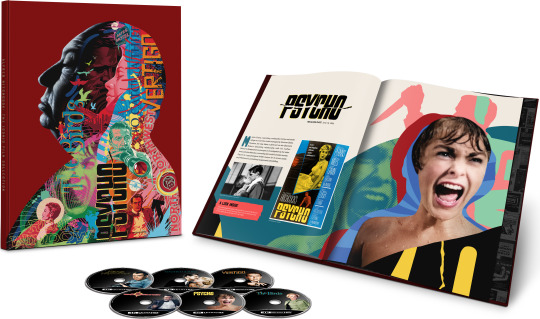
Alfred Hitchcock: The Iconic Film Collection will be released on November 26 via Universal. The 4K Ultra HD + Digital set collects six of the Master of Suspense's classic thrillers: Rear Window, To Catch a Thief, Vertigo, North By Northwest, Psycho, and The Birds.
Limited to 5,150, the six-disc collection is housed in premium book-style packaging featuring artwork by Tristan Eaton along with photos, bios, and trivia.
The uncut version of Psycho is included. Special features are detailed below.
1954's Rear Window is written by John Michael Hayes (To Catch a Thief), based on Cornell Woolrich’s 1942 short story "It Had to Be Murder." James Stewart, Grace Kelly, Wendell Corey, Thelma Ritter, and Raymond Burr star.
Rear Window special features:
Audio commentary by Hitchcock’s Rear Window: The Well-Made Film author John Fawell
Rear Window Ethics - 2000 documentary
Conversation with Screenwriter John Michael Hayes
Pure Cinema: Through the Eyes of The Master
Breaking Barriers: The Sound of Hitchcock
Masters of Cinema
Hitchcock/Truffaut - Audio recording from filmmaker François Truffaut’s in-depth interview with director Alfred Hitchcock about Rear Window
Production photo gallery
Theatrical trailer
Re-release trailer narrated by James Stewart
A wheelchair-bound photographer spies on his neighbors from his apartment window and becomes convinced one of them has committed murder.
1955's To Catch a Thief is written by John Michael Hayes (Rear Window), based on David Dodge’s 1952 novel of the same name. Cary Grant, Grace Kelly, Jessie Royce Landis, and John Williams star.
To Catch a Thief special features:
Audio commentary by Hitchcock historian Dr. Drew Casper
Filmmaker Focus: Leonard Maltin on To Catch a Thief
Behind the Gates: Cary Grant and Grace Kelly
A retired jewel thief sets out to prove his innocence after being suspected of returning to his former occupation.
1958's Vertigo is written by Alec Coppel (No Highway in the Sky) and Samuel A. Taylor (Sabrina), based on Boileau-Narcejac’s 1954 novel The Living and the Dead. James Stewart, Kim Novak, Barbara Bel Geddes, Tom Helmore, and Henry Jones star.
Vertigo special features:
Audio commentary by filmmaker William Friedkin (The Exorcist)
Obsessed with Vertigo: New Life for Hitchcock’s Masterpiece
Partners In Crime: Hitchcock’s Collaborators
Saul Bass: Title Champ
Edith Head: Dressing the Master’s Movies
Bernard Herrmann: Hitchcock’s Maestro
Alma: The Master’s Muse
Foreign censorship ending
100 Years of Universal: The Lew Wasserman Era
Hitchcock/Truffaut - Audio recording from filmmaker François Truffaut’s in-depth interview with director Alfred Hitchcock about Vertigo
Theatrical trailer
Restoration theatrical trailer
A former police detective juggles wrestling with his personal demons and becoming obsessed with a hauntingly beautiful woman.
1959's North by Northwest is written by Ernest Lehman (The Sound of Music, West Side Story). Cary Grant, Eva Marie Saint, James Mason, and Jessie Royce Landis star.
North by Northwest special features:
Audio commentary by writer Ernest Lehman
North by Northwest: Cinematography, Score, and the Art of the Edit
Destination Hitchcock: The Making of North by Northwest
The Master’s Touch: Hitchcock’s Signature Style
North by Northwest: One for the Ages
A Guided Tour with Alfred Hitchcock
A New York City advertising executive goes on the run after being mistaken for a government agent by a group of foreign spies, and falls for a woman whose loyalties he begins to doubt.
1960's Psycho is written by Joseph Stefano (The Outer Limits), based on Robert Bloch’s 1959 novel of the same name. Anthony Perkins, Vera Miles, John Gavin, Martin Balsam, John McIntire, and Janet Leigh star.
Psycho special features:
Original uncut and standard re-releases version of the film
The Making of Psycho
The Making of Psycho audio commentary with Alfred Hitchcock and The Making of Psycho author Stephen Rebello
Psycho Sound
In The Master’s Shadow: Hitchcock’s Legacy
Newsreel Footage: The Release of Psycho
The Shower Scene: With and Without Music
The Shower Sequence: Storyboards by Saul Bass
The Psycho Archives
Hitchcock/Truffaut - Audio recording from filmmaker François Truffaut’s in-depth interview with director Alfred Hitchcock about Psycho
Posters and ad gallery
Lobby card gallery
Behind-the-scenes photo gallery
Production photo gallery
Psycho theatrical trailers
Psycho re-release trailer
A secretary on the run for embezzlement takes refuge at a secluded motel owned by a repressed man and his overbearing mother.
1963's The Birds is written by Evan Hunter (High and Low), based on Daphne du Maurier’s 1952 short story of the same name. Tippi Hedren, Rod Taylor, Jessica Tandy, Suzanne Pleshette, and Veronica Cartwright star.
The Birds special features:
The Birds: Hitchcock’s Monster Movie
All About The Birds
Original ending
Deleted scene
Tippi Hedren’s screen test
The Birds is coming (Universal International Newsreel)
Suspense Story: National Press Club hears Hitchcock (Universal International Newsreel)
100 Years of Universal: Restoring the Classics
100 Years of Universal: The Lot
Hitchcock/Truffaut - Audio recording from filmmaker François Truffaut’s in-depth interview with director Alfred Hitchcock about Vertigo
Theatrical trailer
A wealthy San Francisco socialite pursues a potential boyfriend to a small Northern California town that slowly takes a turn for the bizarre when birds of all kinds suddenly begin to attack people.
Pre-order Alfred Hitchcock: The Iconic Film Collection.
#alfred hitchcock#Rear Window#Vertigo#North By Northwest#Psycho#The Birds#To Catch a Thief#dvd#gift#cary grant#james stewart#anthony perkins#tippi hedren#janet leigh#Tristan Eaton
19 notes
·
View notes
